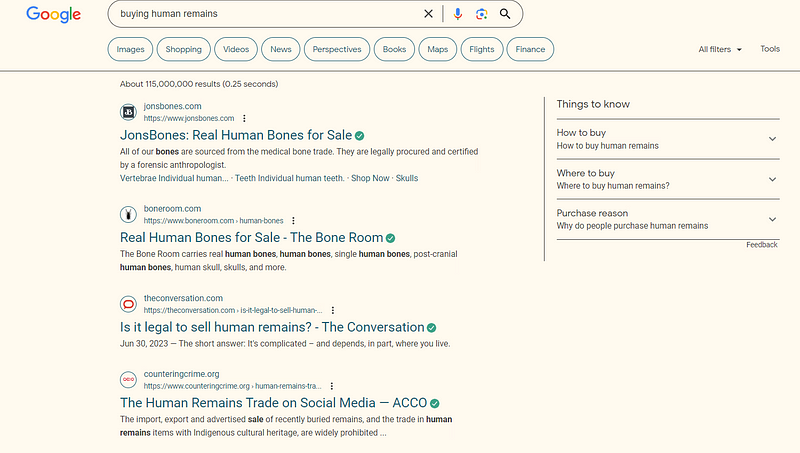The Controversial Trade of Human Remains: Legal Yet Morally Complex
Written on
The Dark Side of Human Remains Trading
Recent events at Harvard Medical School have unveiled a troubling scandal involving the sale of human remains. Six individuals, including Cedric Lodge and Katrina Maclean, faced charges for conspiracy and the interstate transport of stolen goods. This incident is part of a broader, underground network where human remains are bought and sold.
What is shocking is not just the existence of this network, but the platforms where these transactions occur. Contrary to what one might assume, these sales are not confined to the dark web; they often happen on familiar sites like PayPal, with some sellers showcasing their collections on social media. How is this possible, you may wonder? Surely such transactions must be illegal.
Understanding the Legal Landscape
The legality surrounding the sale of human remains is notably intricate. While the sale of entire human bodies is typically outlawed, the regulations governing human body parts can be quite vague and differ significantly from state to state. This patchwork of laws often creates loopholes that enable individuals to engage in the trade of specific human parts.
For instance, in Massachusetts, where Harvard is situated, the law explicitly prohibits the sale and trafficking of human bodies. However, since it does not address the sale of specific parts such as bones or organs, many exploit this legal gray area.
In contrast, Nevada, where I reside, has somewhat clearer regulations regarding human remains. The state's laws detail the removal of bodies or parts from graves but remain ambiguous about the sale of body parts that were never buried.
Ease of Access to Human Remains
Finding human remains for sale, especially bones, is easier than one might think. A simple online search can lead to websites that openly offer these items.

One prominent site, JonsBone